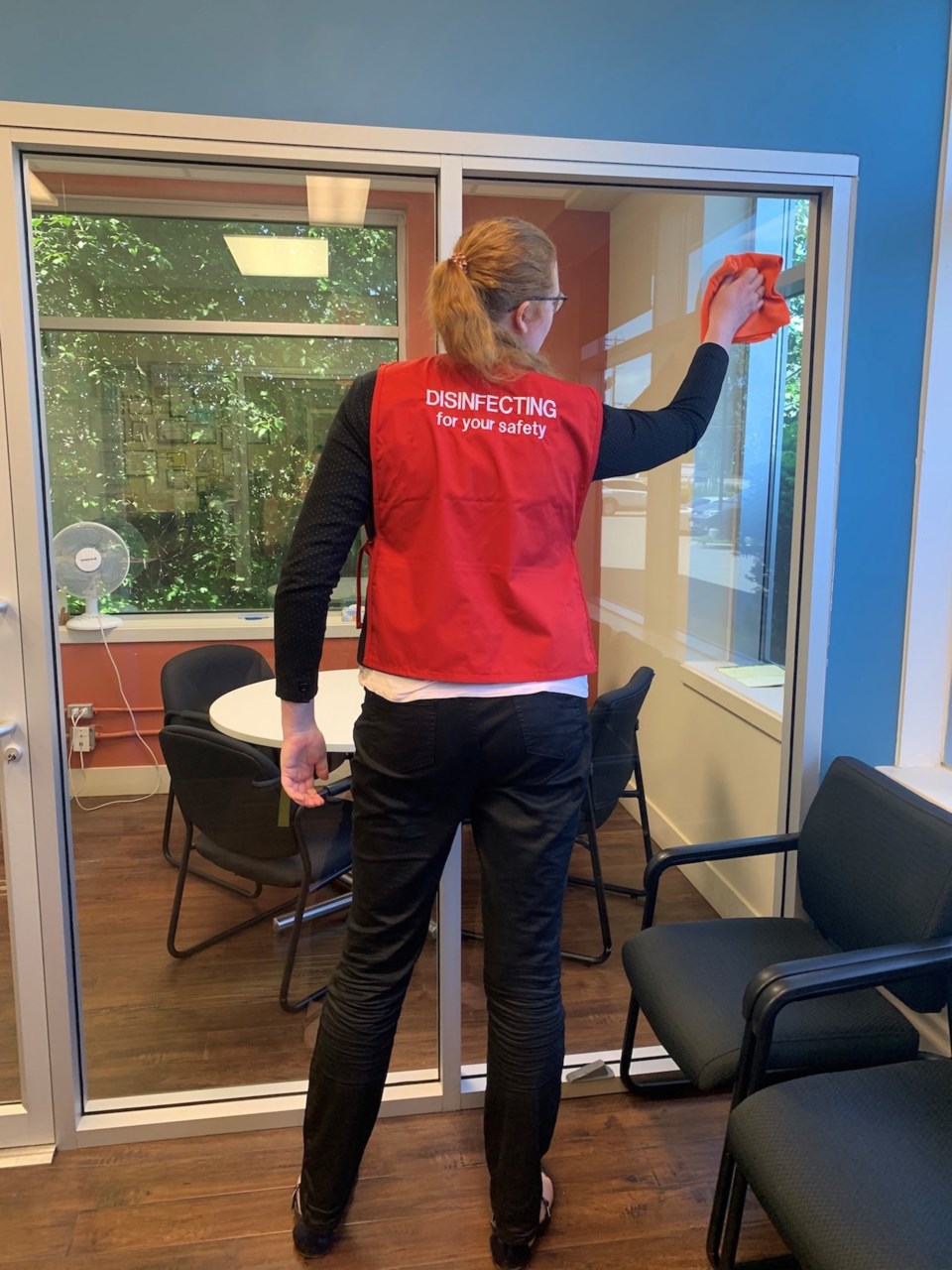As B.C and other provinces lift restrictions, a massive clean-up has begun of offices and other workspaces.
A lot of contracts had been temporarily suspended or they did a reduction in service to just do the bare minimum to maintain their buildings, explained Jasmine Chu, sales manager with JES Building Services and president of the BC Contract Cleaners Association. “I’m getting a lot of phone calls now to do disinfection.”
Understandably, offices that completely shifted over to remote work models during the pandemic may not have seen a need to maintain their regular cleaning schedule. Restaurants, bars and retail outfits that shut their operations entirely are in a similar situation – one that prioritizes cutting costs.
That is ending as tenants and customers start walking in the doors.
Damian Stathonikos, president of the Building Owners and Managers Association of British Columbia (BOMA BC), said many owners and managers are working closely with service providers to ensure new needs are met.
“I think everyone realizes that we’re in a different type of environment now,” he said. “This has really taken things to another level. You’ve got people who have had pandemic plans in place but, really, have never had to implement them.”
Living and working through COVID-19 has commercial building owners and managers around the world discussing what a return to work-as-usual might look like.
At the Guangzhou International Finance Centre, BOMA China executive director Dominic Lau shared during a BOMA Canada webinar that all building entrances are equipped with a handheld temperature scanner. The building’s heating, ventilation and air conditioning system is disinfected weekly. The number of people allowed in the building has been cut in half as social distancing measures remain in effect.
“Those things are pretty hard to do here in Canada because we don’t have the same kind of societal structure,” said Stathonikos. “I can’t imagine people patiently waiting two metres apart while you get your forehead scanned to go into your office building. So what are the lessons that we can learn?”
A good first step is for an employer or building manager to consult with their cleaning service provider, find out what kinds of chemicals and disinfectants they use and review their cleaning schedule, cleaning professionals say.
Alpine Building Maintenance is one of the big five national janitorial service-providers in Canada, and the Vancouver-based company prepared for the COVID-19 clean up back in February.
Now most of Alpine clients, which includes Cadillac Fairview and Lululemon, have moved from preventive cleaning to a sanitation program, said company CEO Harj Johal.
“It meant switching from general all-purpose cleaners to hospital-grade hydrogen peroxide-based disinfectants with longer dwell times,” he explained.
A big change was the heavy demand for red-uniformed cleaners who continually clean touchable surfaces, such as elevator controls and door levers.
In extreme cases, Alpine, which has 1,500 staff and approximately 500 contractors, employs cleaners in hazmat suits, using specialized equipment such as electrostatic sprayers and fogging machines to de-contaminate a business.
Essi Yeganegi, president of Jan-Pro Vancouver, believes the pandemic has already changed people’s perspectives on workplace cleaning protocols. He said a number of his customers have upped their cleaning frequency and are disinfecting their spaces on a weekly basis.
“Standard cleaning protocols don’t cut it in today’s environment,” he said, adding that companies need to align their cleaning protocols with guidelines from the Centers for Disease Control and Prevention.
There there are two key components to keeping workplaces clean: effectively removing the organic load – the soils and debris that viruses and bacteria need to thrive – and safely disinfecting surfaces, Yeganegi said.
“Do both in increased frequency. Every indication is that this will be a prolonged period, and businesses need to recognize that changes to cleaning protocols are required.”



